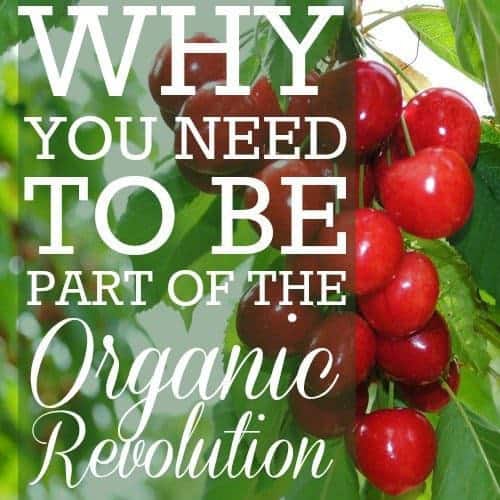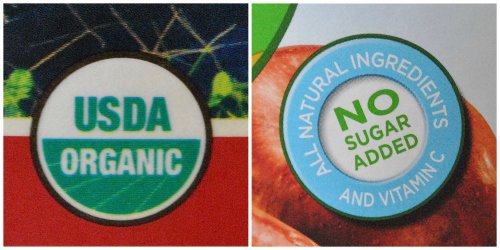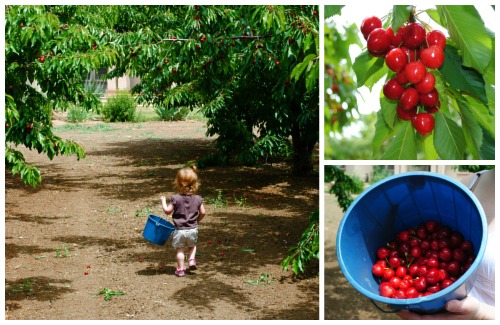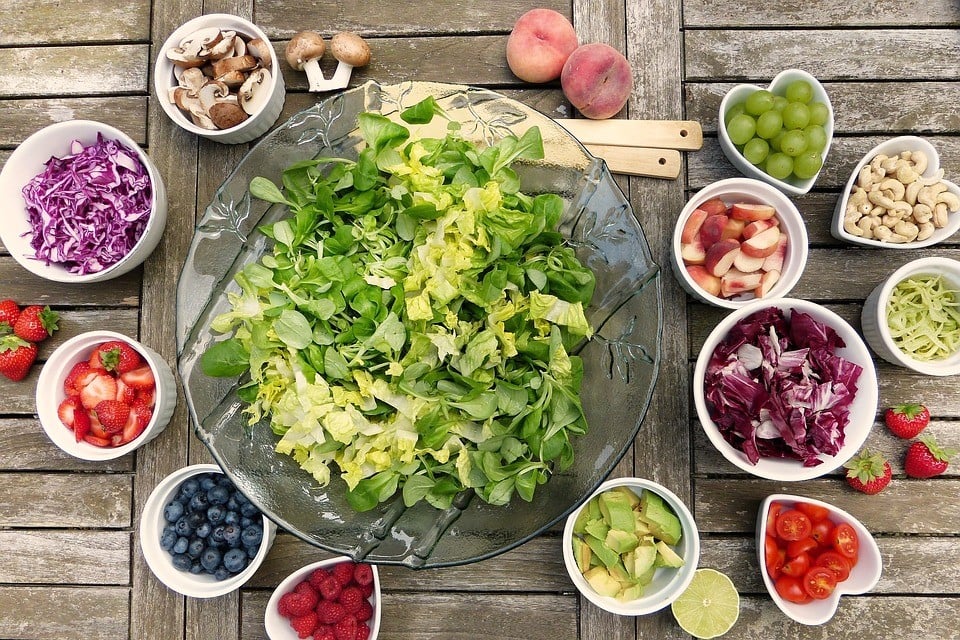 {Photo credit: With A Red Bird On My Shoulder}
{Photo credit: With A Red Bird On My Shoulder}
Organic. It’s a term that has been around for years, but has been sweeping the nation particularly in the last decade. What is organic? What does it mean? And most importantly, why should it mean something to you?
It’s important to understand the difference between organic terms and labels.
According to organic.org, the USDA National Organic Program (NOP) defines “organic” as the following:
Organic food is produced by farmers who emphasize the use of renewable resources and the conservation of soil and water to enhance environmental quality for future generations. Organic meat, poultry, eggs, and dairy products come from animals that are given no antibiotics or growth hormones. Organic food is produced without using most conventional pesticides; fertilizers made with synthetic ingredients or sewage sludge; bioengineering; or ionizing radiation. Before a product can be labeled “organic,” a Government-approved certifier inspects the farm where the food is grown to make sure the farmer is following all the rules necessary to meet USDA organic standards. Companies that handle or process organic food before it gets to your local supermarket or restaurant must be certified, too.
 {Photo credit: With A Red Bird On My Shoulder}
{Photo credit: With A Red Bird On My Shoulder}
USDA Certified Organic Labels:
100% Organic
The item is made with 100% organic ingredients. Simple as that.
Organic
The item is made with at least 95% organic ingredients.
Made With Organic Ingredients
The item is made with no less than 70% organic ingredients. (The remaining ingredients have strict restrictions, such as not allowing genetically modified organisms.)
-
There is a difference between organic and natural.
 {Photo credit: With A Red Bird On My Shoulder}
{Photo credit: With A Red Bird On My Shoulder}
“Natural” is a term used much more loosely than organic, and is not supervised under any government regulations. Natural foods are considered to be minimally processed and should not contain artificial flavors, synthetic ingredients, pesticides or growth hormones. However, since neither the FDA nor USDA regulate the “natural” label, many companies get away with putting it on foods that contain some or all of these toxic elements.
We are exposed to so many toxins throughout our lives – starting as early as conception. It would be impossible to limit our exposure completely, unless we lived in a plastic bubble (and even then, who’s to say we wouldn’t be exposed to BPA and phthalates from the plastic? Ha ha.).
Switching to organic food might seem like a rather hefty transition at first (as it is a major lifestyle change); but it is the easiest way to significantly limit your body’s toxic intake. And organic food is in high demand right now – which means that more and more retailers are starting to stock their shelves with it than ever before. While organic food used to only be found in health food chains, it is now found in many regular super market chains as well as discount grocery chains.
 {Photo credit: With A Red Bird On My Shoulder}
{Photo credit: With A Red Bird On My Shoulder}
You might be reluctant to switch to organic because of the higher prices. While organic food tends to cost more than inorganic food, the prices seem to even out when you look at the bigger picture:
- Organic farms don’t receive the federal subsidies that inorganic farms do. So in reality, the cost of organic food is a truer reflection of the complete cost of production.
- Organic farming requires more labor and management than inorganic farming,
- The cost of the environmental cleanup (due to the toxins going into our land as a result of all of the pesticides and chemicals used for inorganic farming) required throughout the production of inorganic food is paid for through tax dollars – not the price of the food. Inorganic food would cost more if the price reflected that (even though that cost is inevitably coming out of our pockets one way or another.)
 {Photo credit: With A Red Bird On My Shoulder}
{Photo credit: With A Red Bird On My Shoulder}
However, it isn’t difficult to switch to organic on a budget. Here are some tips to help make the transition as cost-efficient as possible:
- Always buy your organic fruits and vegetables in season. If you live in an area where there are farmers’ markets or stands outside of actual farms – that’s even better. Your produce will be the cheapest if you buy it directly from the farms. Bring the whole family and create a fun memory of picking out your produce together.
 {Photo credit: With A Red Bird On My Shoulder}
{Photo credit: With A Red Bird On My Shoulder}
- Buy in bulk. Whenever there’s a sale on organic staples (such as rice, canned goods or snacks), buying in bulk will save you money down the road. You can also buy meats, fruits and vegetables in bulk as long as they will freeze well.
- Buy an entire chicken or turkey instead of pre-packaged pieces. You will save a lot of money doing this, and can freeze whatever you don’t use.
- Buy store-brand organic. Most retailers have their own brand, that is often made under their label by a name-brand producer or distributor. Store-brand organic items are usually much cheaper than name-brand organic items.
- Join a co-op where you will receive discounts on food items every month. To find a co-op in your area, visit www.coopdirectory.org
- If you can’t afford to go completely organic; at the very least, buy organic items that your children eat the most of. Or choose organic for the items that are known to be produced with the highest amounts of pesticides and chemicals.
The Environmental Working Group’s (EWG) 2012 Shopper’s Guide to Pesticides lists the following “Dirty Dozen” as the produce with the highest amounts of pesticide residue, and suggests buying these items organic:
 {Photo credit: With A Red Bird On My Shoulder}
{Photo credit: With A Red Bird On My Shoulder}
- Apples
- Celery
- Sweet Bell Peppers
- Peaches
- Strawberries
- Imported Nectarines
- Grapes
- Spinach
- Lettuce
- Cucumbers
- Domestic Blueberries
- Potatoes
- Kale (may be of concern)
- Green Beans (may be of concern)
Making the transition to a completely organic diet might not be easy, but it will greatly reduce your family’s exposure to toxins. It’s one thing that you DO have control of in this toxic world.
Sources
www.organic.org
www.naturalingredient.org
www.usda.gov
www.fda.gov
www.ewg.org








































